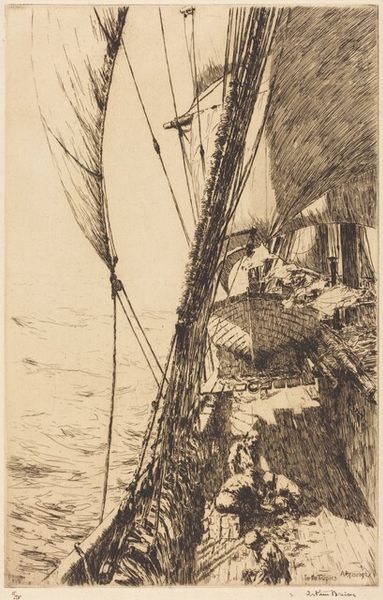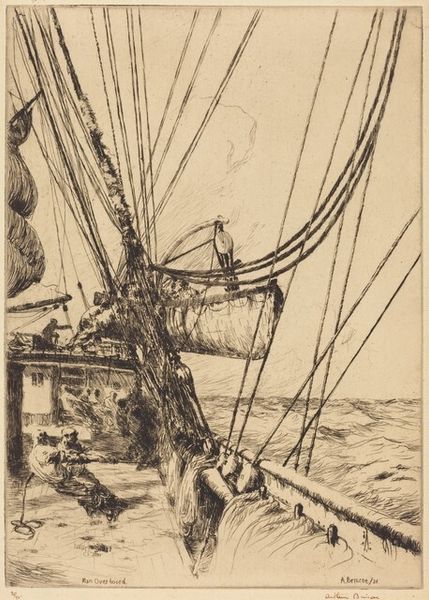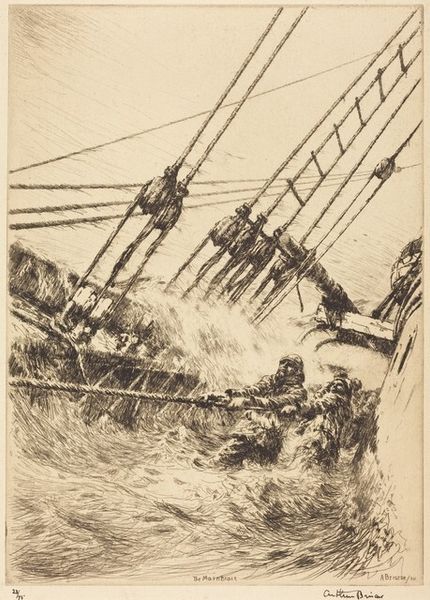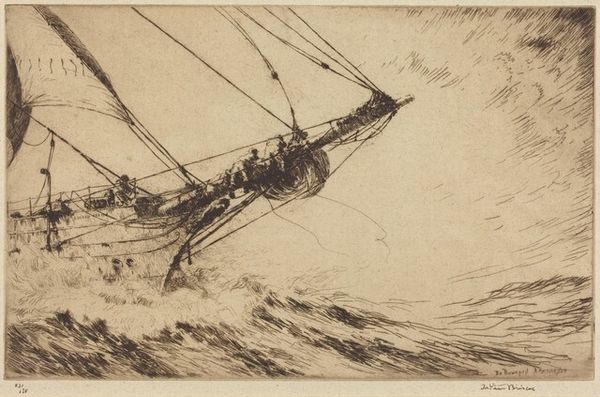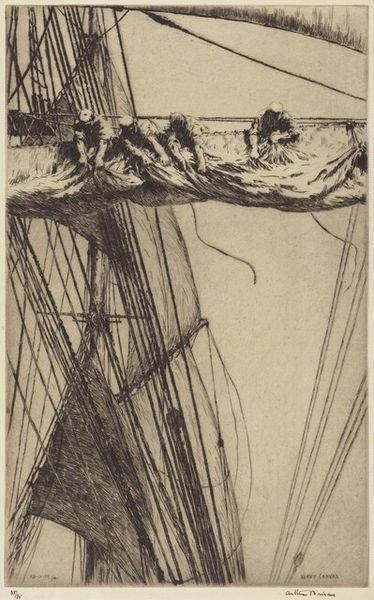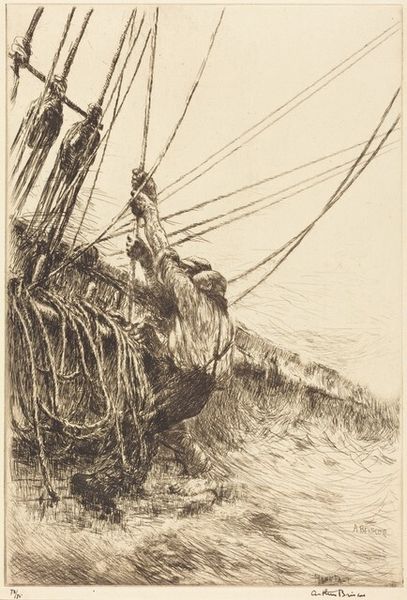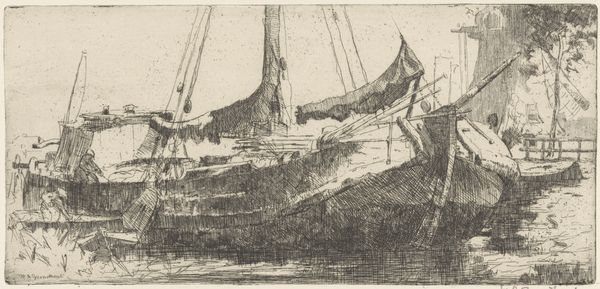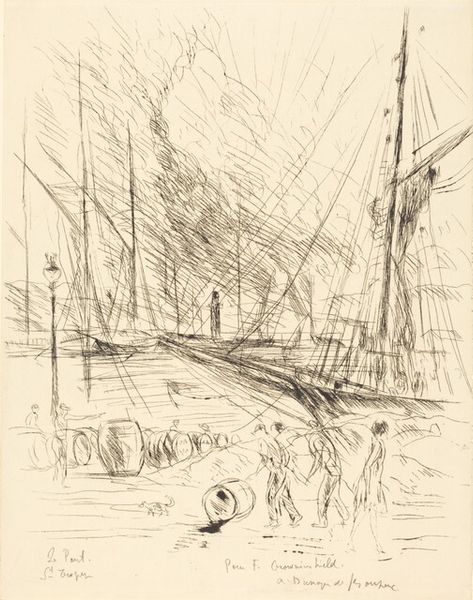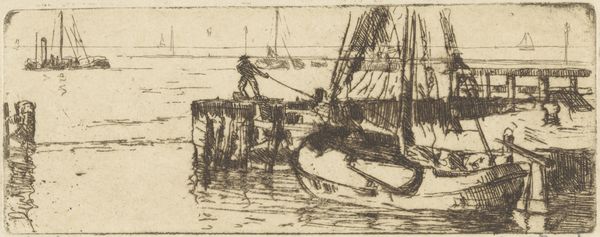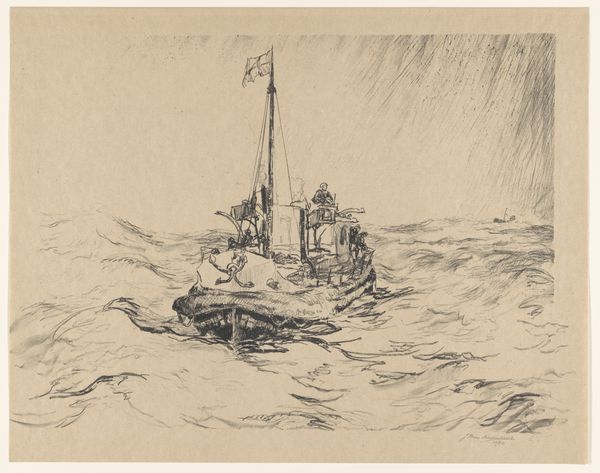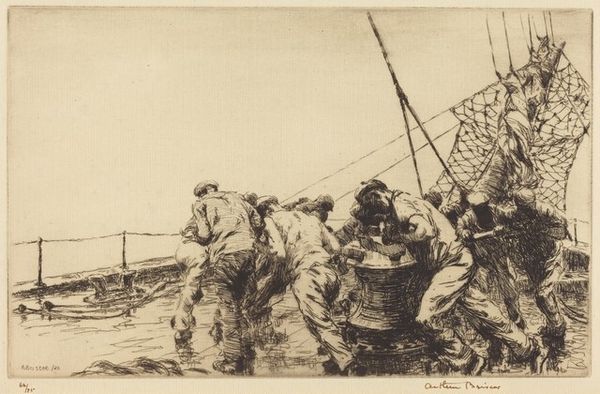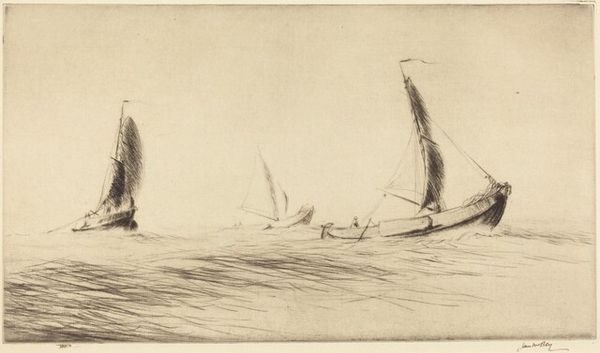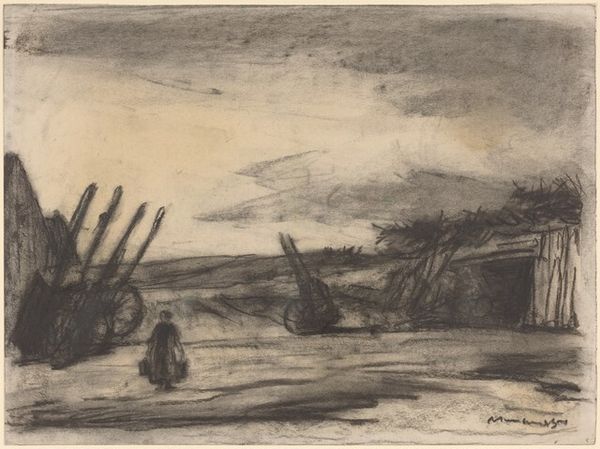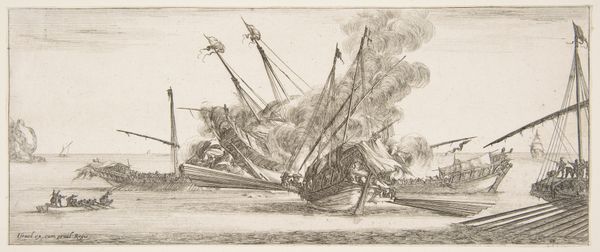
print, etching
# print
#
etching
#
landscape
#
line
#
realism
Copyright: National Gallery of Art: CC0 1.0
Curator: Immediately I’m struck by how turbulent the scene is; it's almost claustrophobic with all that water bearing down on these figures. Editor: What we’re looking at is an etching titled “All Hands” by Arthur Briscoe, dating back to 1926. It exemplifies Briscoe's skillful rendering of maritime life, a recurring subject throughout his oeuvre. His personal experience sailing undoubtedly influenced the subject and material. Curator: I see the figures are almost obscured, subsumed by the wave itself, a powerful metaphor for the working class battling against forces beyond their control. Their representation calls into question issues of labor, class, and the individual versus societal power structures. Editor: Indeed. Etching as a process is interesting here. Notice the density of line—it’s crucial to evoking the conditions the workers endure. The labor involved in both sailing and the etching process reflect one another in the density of manual labor, don't you think? It emphasizes the conditions in which art, and these lives, are produced. Curator: The artist deliberately chose this medium. The density of those lines definitely contributes to the overarching feeling of struggle. Is this image a social commentary about worker's rights, or merely a reflection of the circumstances? Is he positioning the work as documentary? Editor: I feel like we can’t overlook Briscoe’s intimate engagement with boats themselves. The production of these boats in 1926 must have involved considerable social structures. In the face of the move to industrial production, his etchings capture the final stages of manual boat-making; and therefore, become a kind of social document. Curator: Seeing those fine lines, so delicately wrought, reminds me of the perilous and demanding lives these workers lead. As an activist I seek to bring their realities into broader social consciousness and challenge these inherent inequities in representation. The narrative this print creates really makes you consider their social situation within the maritime environment of the 20th century. Editor: Briscoe's “All Hands" reminds us how closely the processes of making are connected. In both art and labour there's a tension to endure and transform material into something beyond itself. Curator: Ultimately, the struggle illustrated in the print asks how art can function to address conditions of power—perhaps it starts with representing those very people!
Comments
No comments
Be the first to comment and join the conversation on the ultimate creative platform.
